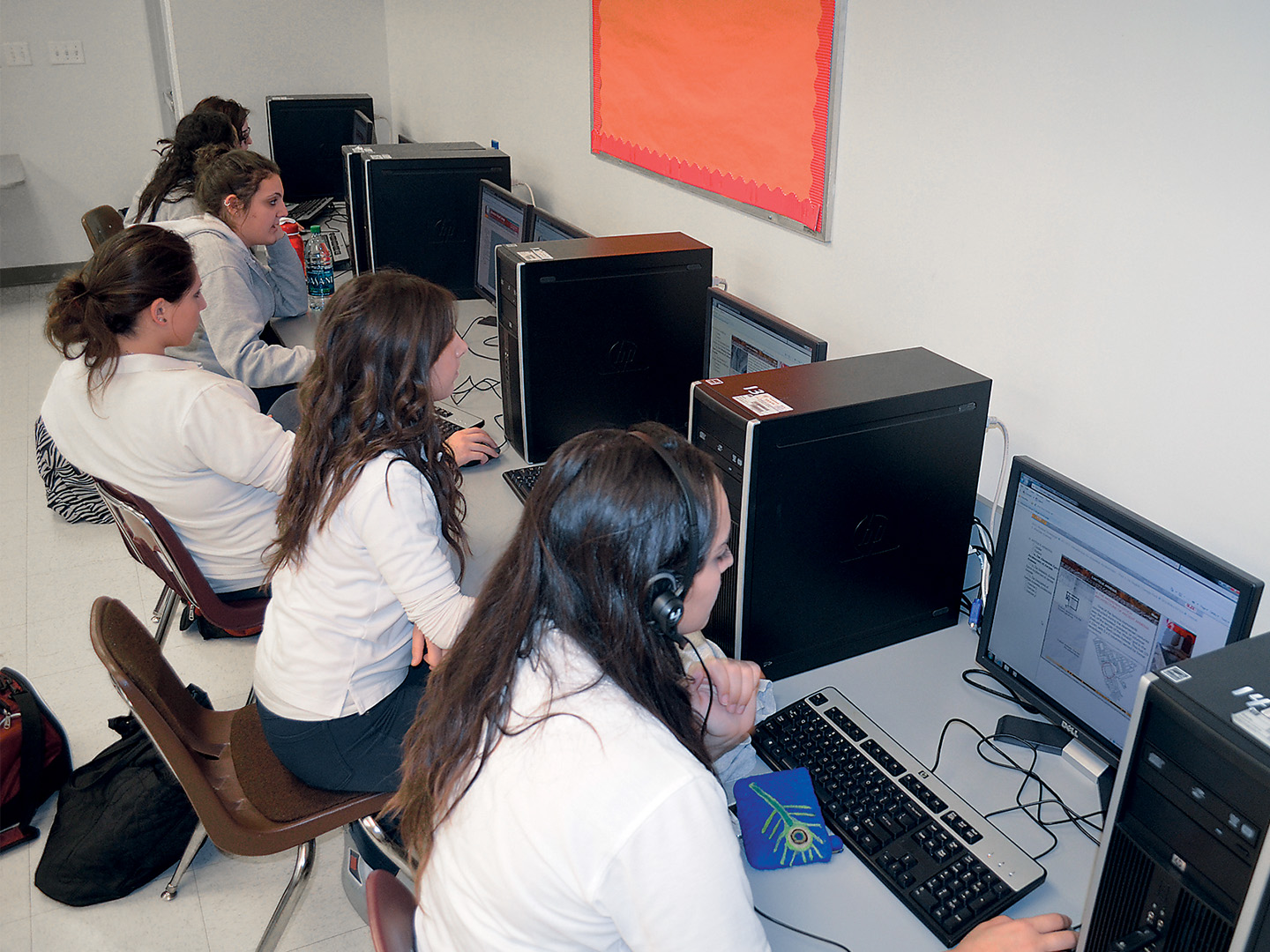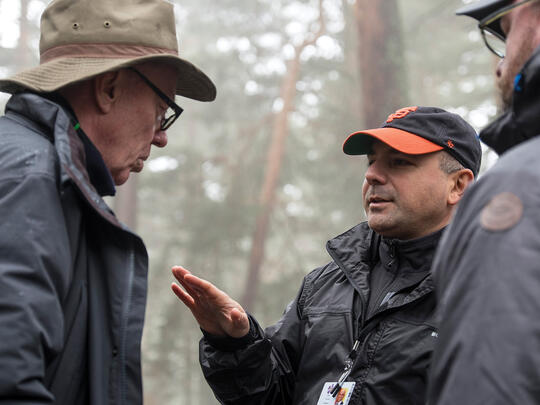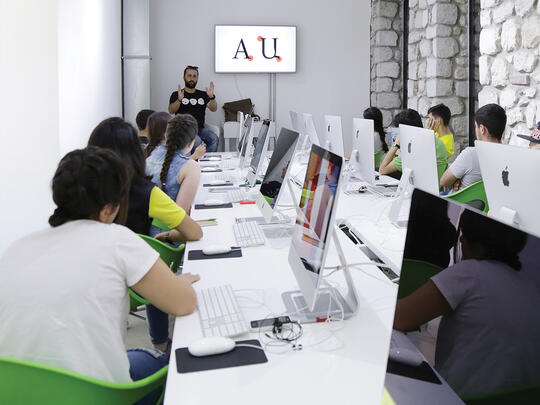Integration of technology has become crucial in the daily learning process of students all around the world, offering convenient access to content, while enhancing traditional learning methods. Since 2009, the AGBU Armenian Virtual College (AVC) has been delivering a groundbreaking online course of study. Tuning into the needs of the more tech-savvy learners, AVC’s TV School and Hybrid Education Program provide timely solutions to the needs of these new types of learners who increasingly prefer technology as a source of information acquisition and education over printed textbooks and conventional curricula.
Prepared in collaboration with the Armenian Ministry of Diaspora, the AVC TV School airs on Armenian Public Satellite TV Channel H1 and was originally developed to provide a wider opportunity for children and adults to learn the Armenian language, starting from alphabet basics to an upper-intermediate level of the spoken and written language. Having premiered in 2014 with instructional programming targeted to English viewers, a new set of TV School programs were back in 2015—now with Russian-language instruction—with the English-language episodes continuing as reruns throughout the year.
Transcending geography, this path-breaking Armenian language learning TV program is based on the AVC online language lessons, which have been adjusted to a special TV format. Broadcasted in conjunction with the online courses, the program gives the viewers the opportunity to get in touch with AVC’s live online teachers to continue the learning online right after each transmission. They can also interact with peers around the world, by enrolling in AVC online courses.
Administered in a more traditional group setting, the Hybrid Education Program blends the conventional methods of education with e-learning to offer the best these two forms of instruction have to offer to those who attend Armenian schools or have Armenian educational courses organized in their local community. The program targets schools and community centers and organizations that wish to introduce innovative and attractive learning methods into their curricula, as well as supplement their programs with additional resources. An entire classroom can sign up for any of the courses offered by AVC, whereby the local teacher and AVC online instructor collaborate throughout the course to help students achieve maximum results through this attractive method of learning.

This method was first introduced at the Ohannesian Armenian School in Sharjah, United Arab Emirates in 2009. Since then, the method has been successfully used in both AGBU and non-AGBU schools and Armenian communities stretching from Latin America to Georgia and from Canada to Russia, reaching an impressive number of 20 participant schools and communities across the globe. Supplemented with virtual tours and social events, and e-meetings and events among the schools and communities, the Hybrid Education Program is becoming a popular resource for Armenian education and networking.
According to Hosep Torossian, Principal of the AGBU Alex and Marie Manoogian School in Southfield, Michigan, “Adding the AVC curriculum to our Armenian language program at the Manoogian High School was an outstanding success. This hybrid approach of combining online and face-to-face instruction improved student engagement and learning, as they benefited from the best practices of these two methods.” For some Armenian schools, AVC has been the expedient means of introducing technology into Armenian classrooms which were otherwise deprived of courses built through innovative learning technologies. In the words of Sevag Koulian, a teacher at St. Sarkis Sunday School in Dallas, Texas, which recently joined the growing list of AVC Hybrid participants, “The AVC project is a very rewarding experience. The opportunity to teach the Armenian language, history, and culture in an organized fashion will do wonders for both the kids and the teachers. In the weeks that we’ve used the program, everyone in the room has learned something new.”
For three successive years, AVC has been offering a version of the Hybrid Education Program through the Summer Language School for participants in AGBU’s Yerevan Summer Internship Program (YSIP), helping these young college students acquire or further develop their Armenian language skills during their eight-week professional stay in Armenia.
AGBU Armenian Virtual College (AVC) is an accredited online learning program that aims to facilitate Armenian studies through new technologies. Launched in 2009, AVC classes are open to anyone who is interested in Armenian studies, delivering a virtual classroom to students and learners of all ages who do not have access to traditional, face-to-face Armenian educational programs, while supplementing the curriculum of those who do. The launch of the e-Book series and TV School mark AVC’s expansion in new and exciting directions.















